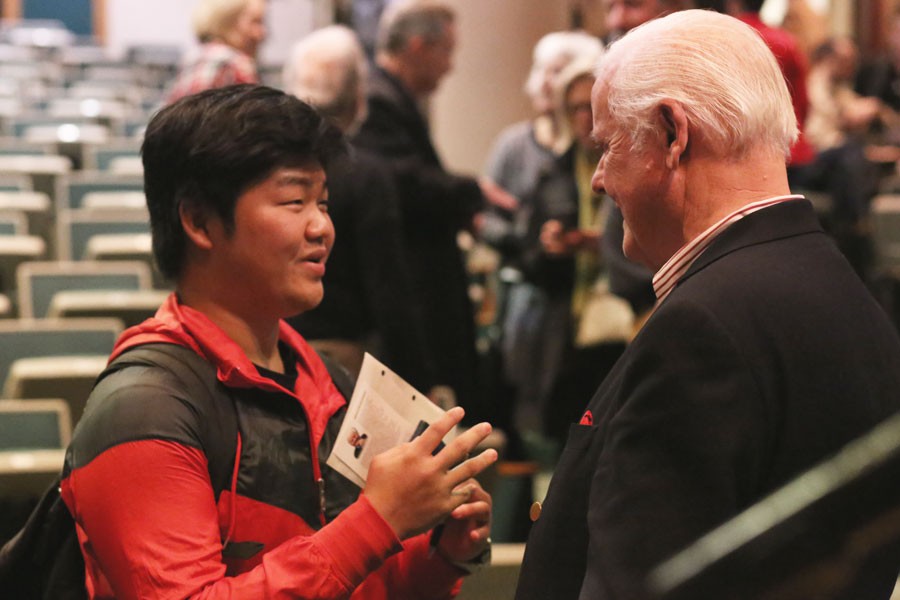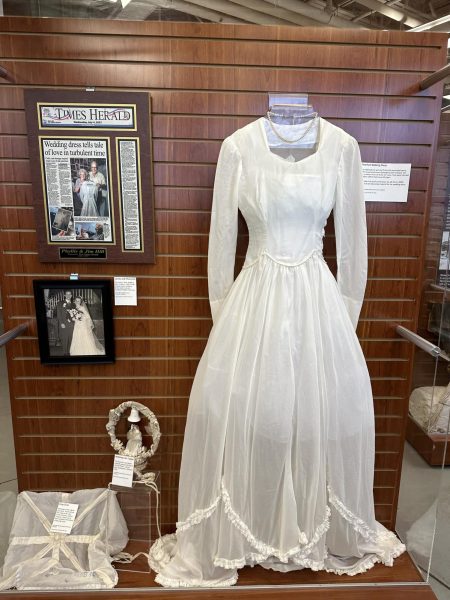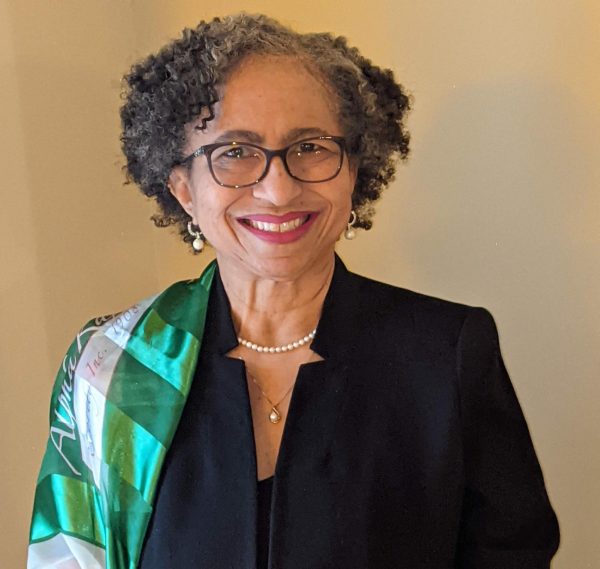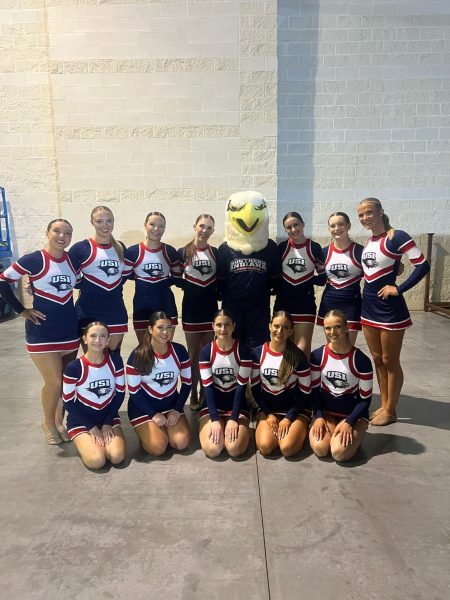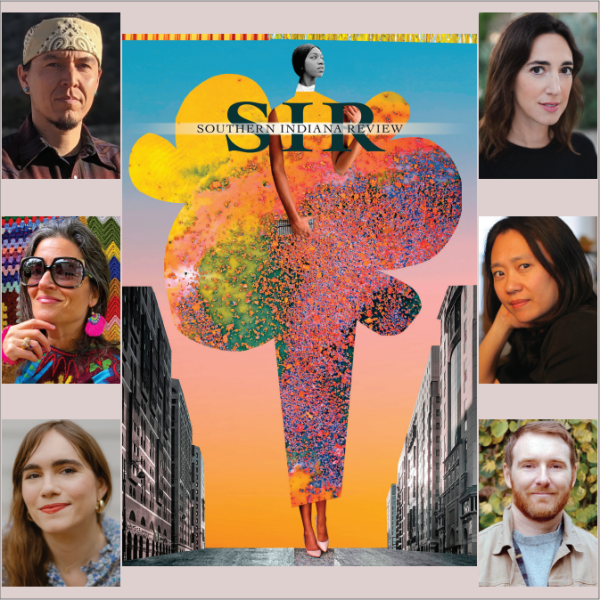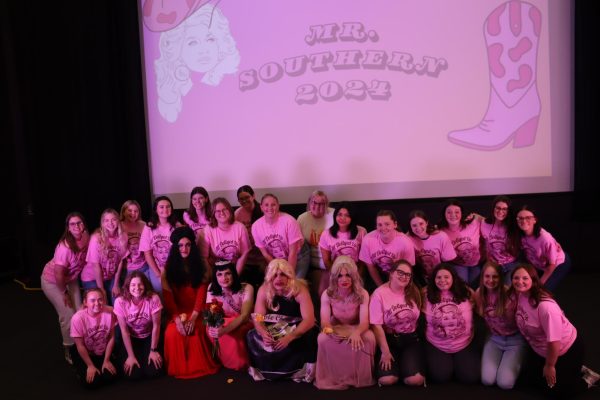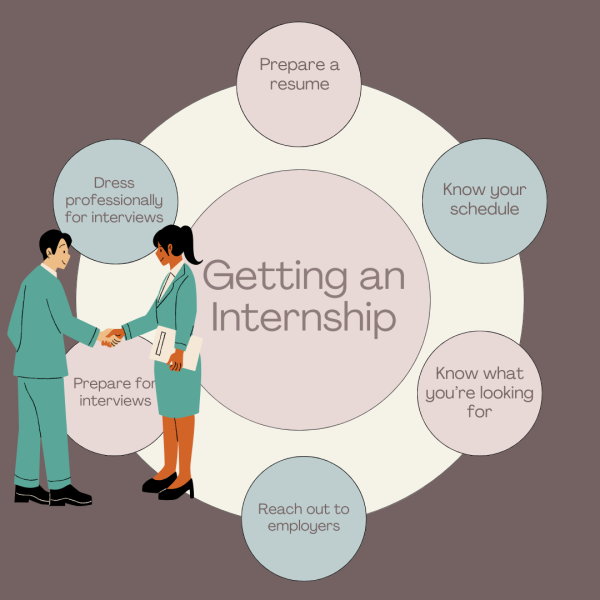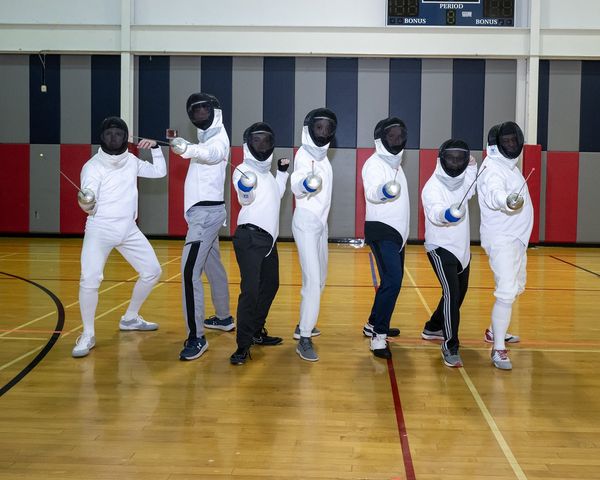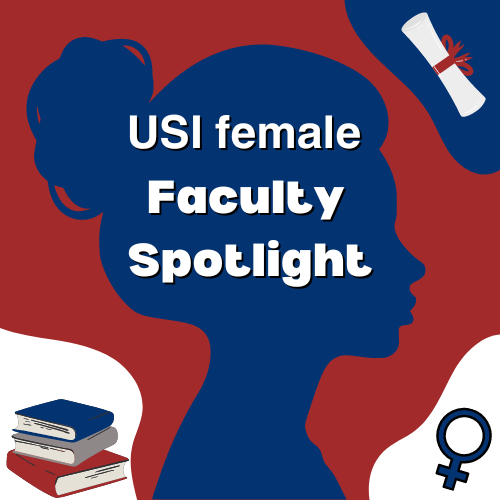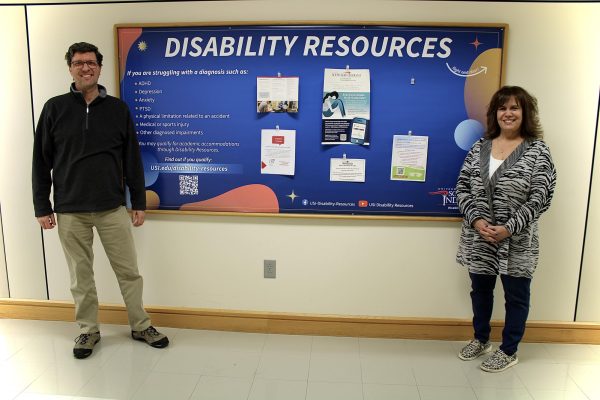Religious freedom speaker discusses civility
Freshman undecided major and international student Soo Sung Chung (left) asks Guinness (right) about how he can take the ideas from the presentation and use them to change other countries Wednesday night. Chung was one of the many attendees who lined up to meet Guinness after the question and answer session.
If Os Guinness could choose another generation, he would pick the Millennial because they’re faced with the challenges of a fastest changing society in history.
The author of “A Free People’s Suicide” and “The Global Public Square” spoke at 7 p.m. Wednesday in Mitchell Auditorium on the importance of religious freedom.
The Founding Fathers’ idea for religious freedom was almost perfect, Guinness said, but today’s Americans are squandering their heritage.
“James Madison called the American solution ‘the true remedy for religion and public life,’” he said.
The U.S. became the most religious modern country in the last two centuries because it lacked a central religion, he said. But he has noticed Americans beginning to look down upon the phrase “religious freedom” in the last three decades.
Religious people, Christians in particular, tend to only fight for their own freedoms, Guinness said.
“Freedom for us is best guaranteed when we fight for freedom for everybody else,” he said. “Religious freedom is always best and strongest when the tiniest minority knows their safe.”
The public square originated in Ancient Greece as a place where people shared ideas and debated viewpoints, Guinness said, but has since become globalized because of the internet.
Guinness said there are those who want a sacred public square where one religion dominates society, which leads to persecution, while others a naked public square where no religion exists in public society.
But, Guinness wants a civil public square where people of all religions can freely discuss and debate their views.
“That is a vision of public life where everybody without exception is free to enter and engage in public life on the basis of their faith, but within a political framework of the three R’s of religion: Rights, Responsibilities and Respect,” he said. “So for example: a right for one is a right for another and the responsibility for both.”
If two people in this type of world disagree on something, they must do it civilly, Guinness said.
People confuse civility with niceness or the need to compromise, he said.
“Civility is the classical word that is a duty of citizens in a diverse society who know how to respect other people’s beliefs and where they differ, handle them civilly, peacefully and not coercively,” he said.
There are times when people need to stand up against what someone believes, but no one should try to coerce others, Guinness said. Instead they should try to persuade others.
“To those of you who are students now, your generation is rising to write one of the most crucial chapters of all.Will you rise to it?” he asked the audience.
Guinness held a Q&A after the speech.
Freshman Aden Parsons asked what Guinness thought is her generation’s biggest handicap.
Guinness said every generation has always been different from another, but society has forgotten this and now uses generations to separate and drive people apart.
“I think he put a lot of things into words that we’re struggling to understand here in the states,” the graphic design major said, “It’s nice to hear it from an outside perspective, from someone who’s not in our politics, but who can observe neutrally.”
Parsons appreciated Guinness’ suggestion to read biographies.
“If we can’t get out into the world ourselves, we can learn from other people’s experiences,” she said.
South Korean international student Soo Sung Chung decided to attend the speech when they read that Guinness was born in China.
“It was really interesting for me to think of me, myself and our generation as the changing generation,” the freshman said. “It was just amazing because I just thought to myself, ‘I was just a bystander most of the times when the changing events (occur).’ I just realized that I really need to get involved and start being active in social issues.”

